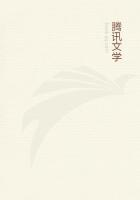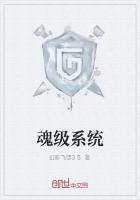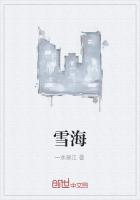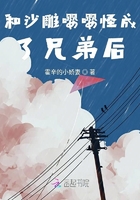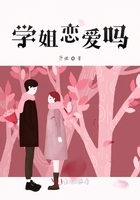Both the writing and staging of "Ivanoff" gave Tchekoff great difficulty. The characters all being of almost equal importance, he found it hard to get enough good actors to take the parts, but it finally appeared in Moscow in 1889, a decided failure! The author had touched sharply several sensitive spots of Russian life--for instance, in his warning not to marry a Jewess or a blue-stocking--and the play was also marred by faults of inexperience, which, however, he later corrected. The critics were divided in condemning a certain novelty in it and in praising its freshness and originality. The character of Ivanoff was not understood, and the weakness of the man blinded many to the lifelike portrait. Tchekoff himself was far from pleased with what he called his "literary abortion," and rewrote it before it was produced again in St. Petersburg. Here it was received with the wildest applause, and the morning after its performance the papers burst into unanimous praise. The author was enthusiastically feted, but the burden of his growing fame was beginning to be very irksome to him, and he wrote wearily at this time that he longed to be in the country, fishing in the lake, or lying in the hay.
His next play to appear was a farce entitled "The Boor," which he wrote in a single evening and which had a great success. This was followed by "The Demon," a failure, rewritten ten years later as "Uncle Vanya."All Russia now combined in urging Tchekoff to write some important work, and this, too, was the writer's dream; but his only long story is "The Steppe," which is, after all, but a series of sketches, exquisitely drawn, and strung together on the slenderest connecting thread. Tchekoff's delicate and elusive descriptive power did not lend itself to painting on a large canvas, and his strange little tragicomedies of Russian life, his "Tedious Tales," as he called them, were always to remain his masterpieces.
In 1890 Tchekoff made a journey to the Island of Saghalien, after which his health definitely failed, and the consumption, with which he had long been threatened, finally declared itself. His illness exiled him to the Crimea, and he spent his last ten years there, ****** frequent trips to Moscow to superintend the production of his four important plays, written during this period of his life.
"The Sea-Gull" appeared in 1896, and, after a failure in St.
Petersburg, won instant success as soon as it was given on the stage of the Artists' Theatre in Moscow. Of all Tchekoff's plays, this one conforms most nearly to our Western conventions, and is therefore most easily appreciated here. In Trigorin the author gives us one of the rare glimpses of his own mind, for Tchekoff seldom put his own personality into the pictures of the life in which he took such immense interest.
In "The Sea-Gull" we see clearly the increase of Tchekoff's power of analysis, which is remarkable in his next play, "The Three Sisters," gloomiest of all his dramas.
"The Three Sisters," produced in 1901, depends, even more than most of Tchekoff's plays, on its interpretation, and it is almost essential to its appreciation that it should be seen rather than read. The atmosphere of gloom with which it is pervaded is a thousand times more intense when it comes to us across the foot-lights. In it Tchekoff probes the depths of human life with so sure a touch, and lights them with an insight so piercing, that the play made a deep impression when it appeared. This was also partly owing to the masterly way in which it was acted at the Artists' Theatre in Moscow. The theme is, as usual, the greyness of provincial life, and the night is lit for his little group of characters by a flash of passion so intense that the darkness which succeeds it seems well-nigh intolerable.
"Uncle Vanya" followed "The Three Sisters," and the poignant truth of the picture, together with the tender beauty of the last scene, touched his audience profoundly, both on the stage and when the play was afterward published.
"The Cherry Orchard" appeared in 1904 and was Tchekoff's last play. At its production, just before his death, the author was feted as one of Russia's greatest dramatists. Here it is not only country life that Tchekoff shows us, but Russian life and character in general, in which the old order is giving place to the new, and we see the practical, modern spirit invading the vague, aimless existence so dear to the owners of the cherry orchard. A new epoch was beginning, and at its dawn the singer of old, dim Russia was silenced.
In the year that saw the production of "The Cherry Orchard,"Tchekoff, the favourite of the Russian people, whom Tolstoi declared to be comparable as a writer of stories only to Maupassant, died suddenly in a little village of the Black Forest, whither he had gone a few weeks before in the hope of recovering his lost health.
Tchekoff, with an art peculiar to himself, in scattered scenes, in haphazard glimpses into the lives of his characters, in seemingly trivial conversations, has succeeded in so concentrating the atmosphere of the Russia of his day that we feel it in every line we read, oppressive as the mists that hang over a lake at dawn, and, like those mists, made visible to us by the light of an approaching day.

